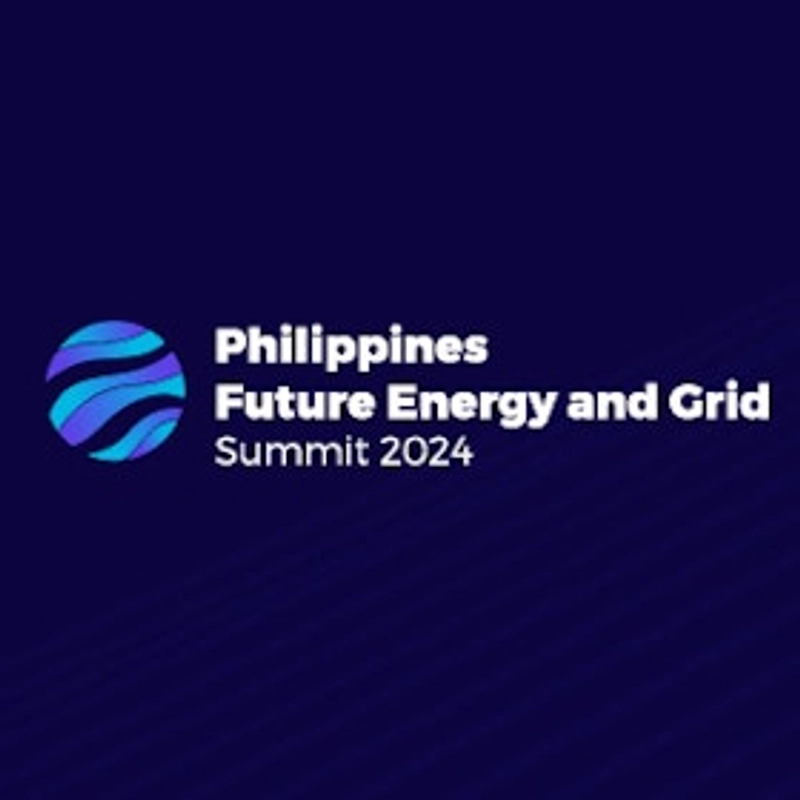Energy Production & Transportation Events in Philippines


The Philippines Future Energy and Grid Summit
Philippines Future Energy and Grid Summit: Powering the Nation’s Transition Toward a Resilient Energy Future
In the heart of Manila, a critical dialogue is taking shape — one that will influence the trajectory of the Philippines’ energy infrastructure and reshape the nation’s grid systems for generations to come. The Philippines Future Energy and Grid Summit, organized by BUIM Group, is emerging as a pivotal event in the country’s transformation toward a more sustainable, resilient, and forward-looking energy landscape.
As the world shifts toward cleaner energy sources, nations like the Philippines must strike a balance between development, demand, and decarbonization. This summit provides the perfect forum for industry leaders, government officials, engineers, innovators, and policy influencers to connect, exchange ideas, and catalyze change in the way energy is generated, distributed, and managed across the country.
A Strategic Summit for a Nation at an Energy Crossroads
The Philippines Future Energy and Grid Summit is not just a business gathering — it is a critical platform for energy transformation. With energy demand rising and pressure mounting to reduce emissions and embrace renewable sources, the Philippines stands at a decisive turning point. This summit is designed to address exactly that.
Central Themes of the Summit Include:
Grid modernization and smart grid deployment
Integration of renewable energy into legacy systems
Energy storage solutions and battery innovation
Digital transformation of energy operations
Policy development and regulatory frameworks
Infrastructure resilience and disaster-readiness
Through high-level discussions and technical deep-dives, attendees will explore how these themes can be translated into tangible solutions tailored to the Philippine context.
Engaging Presentations from Global and Local Experts
One of the key attractions of the Philippines Future Energy and Grid Summit is its expertly curated program of speakers. Delegates can look forward to presentations that are not only informative but also actionable — grounded in real-world examples and tailored insights.
Types of Sessions Expected:
Keynote Addresses from government ministers, global energy thought leaders, and sustainability pioneers
Panel Discussions featuring diverse voices from both public and private sectors
Technical Workshops focused on grid management, smart metering, and energy analytics
Case Studies of successful energy transitions from regional and international markets
These sessions will explore pressing challenges and emerging opportunities while showcasing innovation that is already shaping the energy future in Southeast Asia.
Networking and Collaborative Opportunities
Beyond content, the summit offers a rare opportunity for cross-sector networking. From startup innovators and engineers to utility CEOs and policymakers, the event draws a dynamic mix of professionals committed to rethinking how energy systems operate.
Attendees can expect:
B2B matchmaking opportunities
Roundtable sessions for focused dialogue
Product demonstrations and solution showcases
VIP receptions for strategic partnerships
This collaborative environment makes it easier to forge alliances, form pilot project teams, and explore joint ventures that can accelerate energy transformation in the region.
The Urgency of Energy Transition in the Philippines
With over 7,000 islands, a growing population, and increasing urbanization, the Philippines faces unique challenges in its energy landscape. Grid stability, energy access in remote areas, and disaster resilience are just a few of the pressing issues. The Philippines Future Energy and Grid Summit directly addresses these challenges by promoting discussions and innovations that are both scalable and adaptable.
Key Challenges Highlighted:
Aging grid infrastructure vulnerable to extreme weather events
Inequitable energy access, especially in off-grid and rural regions
High reliance on fossil fuels, limiting the country’s energy independence
Lagging investment in energy storage and digital systems
By bringing these issues to the forefront, the summit fosters a shared vision — one where stakeholders work together to create a cleaner, more reliable grid.
How Technological Innovation Is Driving Grid Transformation
A major focus of the summit will be on technological advancement in energy systems. From automation and AI in energy management to advanced battery solutions and blockchain in electricity trading, the Philippines is on the verge of adopting groundbreaking tools to future-proof its grid.
Key Technologies on Display:
Smart grid components: sensors, control centers, demand response systems
Renewable integration platforms: hybrid solar-diesel setups, microgrids
Cloud-based energy analytics and forecasting
AI-powered fault detection and grid optimization tools
Battery energy storage systems (BESS) for load balancing and backup
These innovations are no longer futuristic — they are current and crucial tools needed to meet rising energy demands while aligning with global climate goals.
Who Should Attend the Philippines Future Energy and Grid Summit?
Given the broad scope and strategic importance of the summit, it is relevant to professionals and organizations across the energy value chain.
Target Attendee Groups:
Utility and grid operators seeking solutions for modernizing infrastructure
Renewable energy developers looking to connect with policymakers
Regulators and government agencies developing long-term energy policies
Engineering firms and consultants working on system design and optimization
Investors and financiers interested in clean energy projects
Academics and researchers exploring energy transition models
Technology providers offering smart grid and storage solutions
Participation offers not only insights and updates but a chance to shape the dialogue and contribute directly to the Philippines’ energy roadmap.
A Must-Attend Event for Energy Professionals
The Philippines Future Energy and Grid Summit is not just another industry conference — it is a strategic gathering that seeks to redefine the future of energy in the Philippines. Through knowledge-sharing, technology demonstrations, and collaborative networking, the summit will help pave the way for an energy-secure, economically vibrant, and environmentally sustainable future.
As the Philippines accelerates its journey toward renewable energy adoption and grid modernization, this summit offers the ideas, tools, and partnerships needed to move from ambition to action.


SOLAR & STORAGE LIVE - PHILIPPINES
In the heart of Pasay, Manila, the SMX Convention Center transforms into a nexus of innovation and opportunity as Solar & Storage Live Philippines unfolds its doors. This event isn't just a gathering—it's a marketplace, a forum, and a celebration of the immense potential of clean energy in one of the world's fastest-growing markets.
Solar & Storage Live Philippines isn't merely an exhibition; it's a convergence of industry titans, innovators, policymakers, and technology leaders. Here, under one roof, installers, distributors, project developers, and solution providers unite, forging connections, sharing insights, and driving the solar and energy storage industry forward.
From cutting-edge solutions for commercial and industrial solar projects to transformative technologies for residential and community-based initiatives, Solar & Storage Live Philippines showcases the full spectrum of possibilities in the clean energy sector. It's a platform where ideas take shape, partnerships are forged, and businesses thrive.
Organized by Terrapinn Holdings Ltd., Solar & Storage Live Philippines stands as a beacon of innovation in the solar energy and energy storage landscape. With a focus on responsive energy, the future of power grids, electric vehicles, and PV technology, this event pushes the boundaries of what's possible in sustainable energy solutions.
Exhibitors from around the globe converge to showcase their latest innovations, spanning battery manufacturing, energy management, electric vehicle production, and beyond. From industry giants to emerging startups, Solar & Storage Live Philippines offers a comprehensive overview of the latest trends and technologies shaping the future of energy.
Beyond the exhibition floor, Solar & Storage Live Philippines offers a wealth of opportunities for professional development and knowledge exchange. Free conferences featuring industry leaders provide insights into key topics, while the Installation Training Hub offers hands-on training for aspiring professionals in the solar industry.
A highlight of the event is the Solar and Storage Live Awards, which recognize outstanding achievements in the solar and energy sectors. By celebrating innovation and excellence, Solar & Storage Live Philippines inspires industry players to reach new heights and drive positive change in the energy landscape.
Solar & Storage Live Philippines isn't just about showcasing products—it's about catalyzing change. By providing a premier platform for networking, collaboration, and business dealings, this event plays a vital role in promoting sustainable energy solutions and driving the transition towards a cleaner, greener future.
As the world grapples with the challenges of climate change and energy security, Solar & Storage Live Philippines stands as a beacon of hope—a symbol of our collective commitment to building a brighter tomorrow powered by clean energy.


PowerTrends
The POWERTRENDS event offers a vital platform for exploring the global energy transformation currently underway and its profound implications for geopolitics and international relations. As highlighted by Director General Amin of the International Renewable Energy Agency (IRENA), the ongoing shift toward renewable energy (RE) is not only a response to climate change but is also redefining the global energy landscape. This transformation is marked by a number of enabling trends that are accelerating the transition to cleaner energy sources and reshaping the dynamics of global energy markets.
One of the most significant trends driving this change is the rapid decline in the costs of renewable energy technologies. Over the past decade, solar, wind, and other renewable technologies have become increasingly affordable, making them viable alternatives to fossil fuels. This cost reduction, coupled with the growing awareness of the environmental and economic challenges posed by fossil fuel consumption, has made renewable energy a more attractive and practical choice for governments, businesses, and consumers alike. Governments worldwide are also playing a crucial role by setting more ambitious renewable energy targets, driven by both environmental goals and the growing business case for renewables. These commitments are supported by strong policy frameworks, financial incentives, and a growing public desire for cleaner energy solutions.
In addition to falling costs and strong governmental support, technological innovations are propelling the renewable energy sector forward. Breakthroughs in energy storage, smart grid technologies, and advanced materials are enabling more efficient energy generation, distribution, and storage. The digitalization of the energy sector is also playing a key role, allowing for greater integration of renewable energy into existing grids and improving the management of fluctuating supply and demand. As a result, renewable energy is no longer seen as a niche solution but as a central component of future energy systems.
Another critical driver of the energy transition is the growing shift towards renewable energy by major international companies. Many large corporations, particularly in sectors like technology and manufacturing, are increasingly committing to renewable energy for their electricity needs, as part of their sustainability goals and to reduce their reliance on fossil fuels. This shift is not only motivated by environmental concerns but also by the recognition that renewable energy can offer more stable and predictable long-term costs compared to the volatile prices of fossil fuels. As these corporations lead the way, their influence is helping to accelerate the adoption of renewable energy across industries and regions.
However, as the global energy market shifts away from fossil fuels, the geopolitical landscape is also changing. As the demand for oil, gas, and coal declines, traditional alliances built around the extraction and consumption of fossil fuels are likely to weaken. While some geopolitical ties will remain for other reasons, the energy pillar of these relationships will be less significant. Countries are beginning to reassess their energy diplomacy, recognizing that the future of energy lies in renewable sources. New alliances and energy initiatives are emerging, particularly among countries like Germany, the UAE, and India, which are positioning themselves as leaders in renewable energy development and innovation. Although these initiatives are still in the early stages, they are likely to have a growing geopolitical impact in the coming years.
The transition to renewable energy is also reshaping the geography of global energy connections and dependencies. While the global energy market has traditionally been defined by oil and gas trade across vast distances, the shift to renewables is expected to lead to the development of more regional energy markets. Countries that currently import fossil fuels from distant regions may increasingly look to develop domestic renewable energy resources and integrate their power grids with neighboring countries. This decentralization of energy production could reduce the need for long-distance energy transport and create new regional energy networks based on mutual cooperation and shared resources.
POWERTRENDS serves as a critical event for understanding the dynamics of the ongoing global energy transformation. With the accelerating shift to renewable energy, changing geopolitical alliances, and new technological advancements, the energy landscape is undergoing a profound reconfiguration. As the world moves toward a more sustainable energy future, the discussions at POWERTRENDS will help guide stakeholders in navigating the complexities of this transition, ensuring that energy security, economic growth, and environmental sustainability go hand in hand.